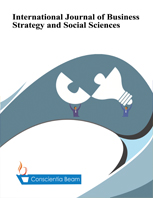Collaborative Technology Commercialization in Malaysian Public Universities: Gaps and Solutions in Classical Shariah Frameworks
DOI:
https://doi.org/10.18488/171.v5i2.3113Abstract
With the motivation to improve the commercialization rate of Malaysian public universities, this study aims to explore the collaborative elements found in the classical Shariah frameworks that can be adopted to develop a dynamic collaborative technology commercialization framework. To answer this question, literature review was conducted on commercialization strategies and frameworks, and collaborative elements in classical Shariah frameworks. Apart from modern literatures, the historical accounts of Ibn Khaldun in The Muqaddimah, the jurisprudence on partnerships during the Ottoman Empire in The Al-Majalla, and Shariah Standards for Mudarabah and Musharakah in The Accounting and Auditing Organization for Islamic Financial Institutions were also reviewed. This study finds that the protective approach in the Intellectual Property (IP) strategy commonly adopted by the Malaysian public universities limits the success and increases the gap in commercialization. Furthermore, there is a concern on the high redundancy and coordination cost of collaboration. It was found that IP strategies based on openness and connectedness offers solutions to the issues identified. This study also highlights the collaborative frameworks in Mudarabah, Musharakah and Shariah partnership structures that the universities can use that provide a clear collaboration outcome. In addition to the alternative frameworks, the parties involved also need to upskill in monitoring and managing commercialization in the best and most efficient way to fulfill commercialization in Malaysia, as captured in the Twelfth Malaysia Plan. The outcome of this study seeks to provide Malaysian public universities with a guideline in enhancing collaborative technology commercialization.

